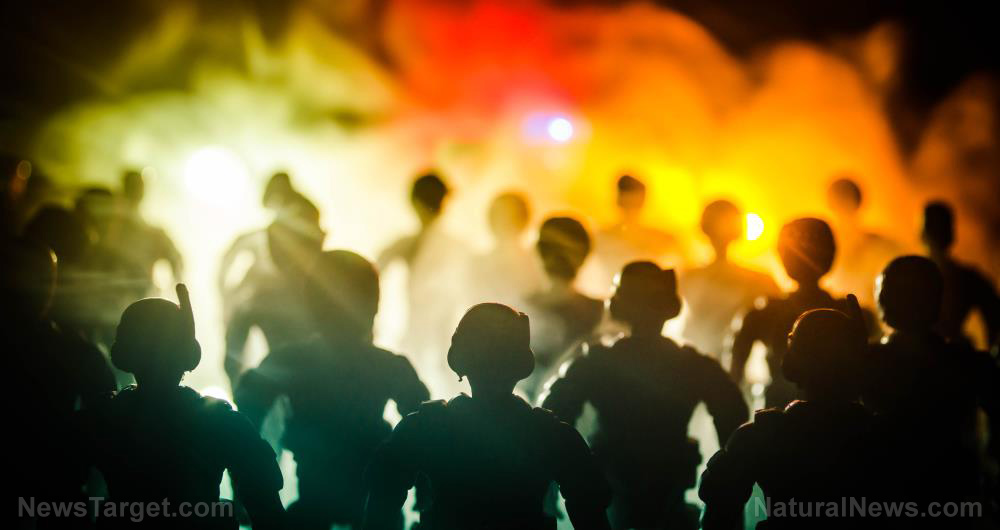Experts warn protesters: “You could start new wave of coronavirus infections”
06/05/2020 / By Michael Alexander

Demonstrators who attended this week’s series of George Floyd riots are at risk for contracting COVID-19 infections, authorities have warned.
The ongoing demonstrations and riots, which began in Minnesota’s Minneapolis–Saint Paul metropolitan area before spreading throughout the United States and other countries around the world, have attracted thousands of attendees – a fact that is fast becoming a cause of worry for health professionals and government officials.
“We don’t want people in close proximity to each other, we don’t want people out there where they might catch this disease or spread this disease,” New York City Mayor Bill de Blasio said, urging protesters to maintain social distancing and wear masks.
Experts fear second wave of infections
According to medical professionals, the nature of the rallies and demonstrations – which often defy social distancing rules – make them a prime spot for infections from asymptomatic individuals.
“There’s no doubt in my mind that these can become breeding grounds for this virus,” Michael Mina, an epidemiologist at Harvard T. H. Chan School of Public Health, said in a meeting with the media, adding that he would not be surprised to see increases in COVID-19 infections within the coming weeks. (Related: Anti-lockdown protests might be spreading the coronavirus.)
A historical precedent to the dangers of large public gatherings happened during the height of the 1918 Spanish Flu pandemic. The city of Philadelphia held an ill-advised Liberty Loans parade in September 1918 to support the country’s World War I bond drive. The gathering, which brought over 200,000 people – all of whom were crammed shoulder to shoulder – reignited a deadly flu epidemic, which then led to nearly 13,000 deaths in the city.
Despite the risk of infection, people like Kelli Ann Thomas, a community organizer, still opted to join the protests.
“The police violence against black people – that’s a pandemic, too. People are willing to risk their lives, to risk their health, to show solidarity with black people,” Thomas said in an interview with the New York Times.
In response to the criticism faced by the demonstrators, several protest leaders have urged attendees to get themselves tested for the coronavirus.
Tay Anderson, a protest leader and school board member based in Denver, for instance, put out a call on social media for protesters to join him in getting tested for the coronavirus at the Pepsi Center, an arena that the city has converted into a site for free mass testing.
The protest leaders’ calls for testing echo appeals previously made by authorities, such as Atlanta Mayor Keisha Lance Bottoms.
“If you were out protesting last night, you probably need to go get a COVID test this week,” Bottoms said at a news conference, reminding protesters that “there is still a pandemic in America that’s killing black and brown people at higher numbers.”
Aside from testing, authorities are also encouraging protesters to be more responsible and vigilant regarding their health at the protests they attend, in a bid to stave off the much-feared second wave of coronavirus infections.
According to Theodore Long, vice president of ambulatory care at Health + Hospitals, and the state of New York’s Test and Trace Corps leader, those who attend the protests must wear masks, practice proper hand hygiene – and if possible – enforce social distancing.
Some health experts, however, say the second wave of COVID-19 infections is likely to happen – with or without the current spate of protests.
“Any time people are together in the same area, there’s always a risk that respiratory viruses or other respiratory pathogens, including COVID, could be transmitted from one person to the next,” Rick Martinello, medical director of infection prevention for Yale New Haven Health, said, adding that the risk of transmission is already on the rise due to the re-opening of restaurants and other businesses across the country.
As of this writing, the U.S. has logged 1,831,821 confirmed COVID-19 infections and 106,181 deaths, according to data from Johns Hopkins University.
Sources include:
Submit a correction >>
Tagged Under:
coronavirus, covid-19, disease, Flu, George Floyd, government, infections, outbreak, pandemic, protest, protests, rally, second wave, superbugs
This article may contain statements that reflect the opinion of the author
RECENT NEWS & ARTICLES
Infections.News is a fact-based public education website published by Infections News Features, LLC.
All content copyright © 2018 by Infections News Features, LLC.
Contact Us with Tips or Corrections
All trademarks, registered trademarks and servicemarks mentioned on this site are the property of their respective owners.





















